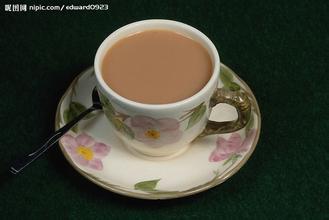El Salvador Himalayan Coffee Manor with excellent balance of flavor and taste
The latest government of El Salvador was formed in June 2014. The main cabinet members are Vice President Oscar Ortiz (Oscar Ortiz), Foreign Minister Hugo Roger Mart í nez Bonillia, Finance Minister Carlos C á ceres, economy Minister Tharsis Salom ó n L ó pez, Defense Minister David Mungui í a Pay é s. Sandra Eddiwell Guevara Perez, Minister of Labour and Social Security (female, Sandra Edibel Guevara P é rez), Minister of Agriculture Orestes Autes (Orestes Ortez), Minister of Public Health Violeta Menshiwar (female, Violeta Menj í var), Minister of Public works, Transport, Housing and Urban Development Gerson Mart í nez, Minister of Environment and Natural Resources Lina Lina Pohl Tourism Minister Jose Napole ó n Duarte. [1]
Judicature
The judicial power of El Salvador is exercised by the Supreme Court, the Procurator-General's Office, etc. The Supreme Court is composed of 15 judges (including the President) and is elected by Parliament. The President of the Supreme Court shall serve for a term of five years and shall be eligible for re-election. Judges are appointed for a term of nine years, with 1/3 re-elected every three years. The Attorney General shall be elected by Parliament for a term of three years and shall be eligible for re-election. Oscar Armando Pineda Navas (Oscar Armando Pineda Navas), president of the Supreme Court, took office in August 2014. Attorney General Sonia Cortez de Madeleine (female, Sonia Elizabeth Cort é z de Madriz), took office in January 2010 and was re-elected in January 2013. [1]
Political party
Frente Farabundo Mart í parala Liberaci ó n Nacional, the ruling party. In October 1980, the "Farabundo Marty people's Liberation Army", the "National Resistance Forces", the "people's Revolutionary Army", the Central American Labor Revolutionary Party and the Communist Party of El Salvador jointly formed an armed front against the government. In January 1992, the Front signed a Peace Agreement with the Government and became a legitimate political party in December. In June 1995, all parties within the Front uniformly formed the "Farabundo Marti National Liberation Front" party. Three elections were lost in 1994, 1999 and 2004, and the party's candidate Funes won the presidential election in March. By January 2016, the party had about 120000 members
The Republic of El Salvador, located in the north of Central America, is the most populous country in Central America. The country is bordered by Honduras to the north, the Pacific Ocean to the south and Guatemala to the northwest. The national economy is dominated by agriculture, and the main crops are coffee and cotton. El Salvador is also one of the birthplaces of ancient Mayan culture, with not only distant culture, but also beautiful scenery such as volcanoes, plateau lakes and beaches along the Pacific coast.
The topography here is mainly mountainous and plateau, with many volcanoes. Savanna climate. The plain area belongs to the tropical rain forest climate and the mountain area belongs to the subtropical forest climate. The average annual temperature is 25-28 ℃, and the annual precipitation is more than 1800 mm in mountainous areas and about 1000 mm in coastal areas. With rich water resources and short and fast rivers, El Salvador's coffee from volcanic lakes accounts for 40% of the country's exports, and the picking period is usually in November, December and January-March of the following year. The export of raw beans lasts almost all year round. Coffee is produced in seven of the country's 14 provinces, with the largest number in the northwestern provinces of chalatenango and santa ana. El Salvador produces 100% Arabica coffee, 68% of which is bourbon, which usually grows at an altitude of 1062 Mel 1972 meters. On the other hand, El Salvador has a unique mountain, river and plateau, which provides a suitable environment for the growth of bourbon coffee. At the same time, El Salvador's suitable temperature, abundant precipitation and fertile soil are also indispensable natural conditions for breeding high-quality coffee beans. Like other typical island beans, Salvadoran coffee is balanced, soft and good in texture.
El Salvador boutique coffee is concentrated in the volcanic rock producing areas of Santa Ana in the west and Charantanan fruit in the northwest. In recent years, the top 10 cup tests are almost entirely from these two producing areas, with an elevation of about 9-1500 meters, mainly bourbon (68%). Followed by Pacas (29%), mixed-race Pakamara, Dulaai and Kaddura accounted for only 3% of the coffee flavor. In 2005, the Salvadoran mixed-race Pacamara boasted in coe, which confused many international cup testers and did not know how to grade it. It never expected that this hybrid bean not only broke the mellow boundary of coffee, but also expanded the visibility of Salvadoran coffee. In its heyday, it was once the fourth largest coffee producer in the world, but decades of civil war almost dragged down the coffee industry. fortunately, the war has stopped in recent years, and the coffee industry has come back to life. The only benefit of the civil war for the Salvadoran country is that the farmers' fields are barren and fail to catch up with the most popular Katimo exposure train in nearly two decades, thus preserving the ancient varieties of bourbon and Tibika, that is to say, El Salvador still uses the most traditional shade to grow coffee from November to March of the following year. The fresh fruit of coffee is picked by hand. Coffee in El Salvador is grown mostly by small farmers, who grow it in the traditional way: almost 100% shade. The coffee harvest lasts from November to March. All the fresh coffee fruits are picked by hand.

Important Notice :
前街咖啡 FrontStreet Coffee has moved to new addredd:
FrontStreet Coffee Address: 315,Donghua East Road,GuangZhou
Tel:020 38364473
- Prev

Costa Rican Yesaro Coffee Flavor and taste introduction to the characteristics of Fine Coffee in the Manor area
The Supreme Court is the highest judicial body, composed of 22 judges for a term of eight years. At the end of his term of office, he or she may be automatically re-elected if there is no objection from the members of Parliament. There are four courts, the first, second and third tribunals are each composed of five judges, and the fourth court (Constitutional Court) is composed of seven judges and has the final power to interpret the Constitution. The Chief Justice shall be appointed by the Legislative Assembly for a term of eight years and may be re-elected. Highest
- Next

Introduction to the characteristics of the flavor and taste production area of Costa Rica's St. Roman Coffee Manor with clear flavor
Costa Rica is one of the first countries in the Americas to establish a democratic system, and the idea of freedom and equality is deeply rooted. Costa Ricans love peace and oppose violence. As early as December 1, 1948, Costa Rica announced the abolition of the armed forces and the establishment of the National Guard, becoming the first country in the world without an army. [7] in 2007, there were 18000 police officers, which put an end to the possibility of soldiers interfering in politics.
Related
- Detailed explanation of Jadeite planting Land in Panamanian Jadeite Manor introduction to the grading system of Jadeite competitive bidding, Red bid, Green bid and Rose Summer
- Story of Coffee planting in Brenka region of Costa Rica Stonehenge Manor anaerobic heavy honey treatment of flavor mouth
- What's on the barrel of Blue Mountain Coffee beans?
- Can American coffee also pull flowers? How to use hot American style to pull out a good-looking pattern?
- Can you make a cold extract with coffee beans? What is the right proportion for cold-extracted coffee formula?
- Indonesian PWN Gold Mandrine Coffee Origin Features Flavor How to Chong? Mandolin coffee is American.
- A brief introduction to the flavor characteristics of Brazilian yellow bourbon coffee beans
- What is the effect of different water quality on the flavor of cold-extracted coffee? What kind of water is best for brewing coffee?
- Why do you think of Rose Summer whenever you mention Panamanian coffee?
- Introduction to the characteristics of authentic blue mountain coffee bean producing areas? What is the CIB Coffee Authority in Jamaica?

